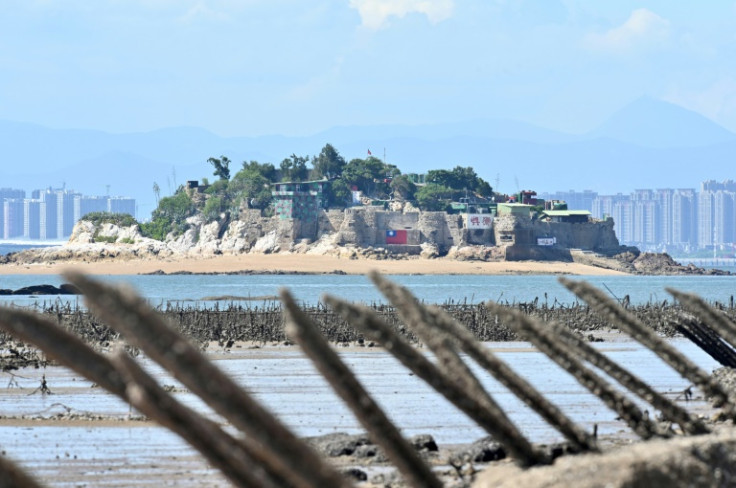US Warns It Will Not 'Abide By' China's Efforts To Change Taiwan's 'Status Quo'

KEY POINTS
- John Kirby condemned China's act of flying drones in Taiwanese airspace
- The Taiwanese military Tuesday fired warning shots at drones from China
- China dismissed Taiwan's complaints of 'drone harassment'
The United States has warned that it will not "abide by" China's efforts to change the "status quo" of self-governing Taiwan, a day after Beijing sent drones near Taiwanese airspace.
Speaking to a group of reporters Wednesday, U.S. National Security Council Coordinator John Kirby condemned China's decision to send unmanned drones near Taiwanese airspace and said it was an attempt by the Chinese government to "permanently alter" the "status quo" in Taiwan. Kirby said the U.S. will not recognize nor abide by China's efforts.
"What we have seen before the Speaker's visit, during that visit, and after that visit is a clear attempt by the Chinese to permanently alter the status quo in and around Taiwan and to sort of set a new normal for their activities and behaviors, be that behavior crossing over the medium line with air and maritime assets or in this case, overflight by unmanned aerial systems," Kirby was quoted as saying by Fox News. "We're not going to recognize it [or] abide by it."
The drone incident took place Tuesday on the Kinmen island group, an islet controlled by Taiwan just 9 miles from the Chinese coast. Members of the Taiwanese military fired warning shots at drones from China, forcing them to head back to the nearby city of Xiamen, according to the Associated Press.
In response to the drone incident, Chinese Foreign Ministry spokesperson Zhao Lijian reiterated that Taiwan belongs to China and dismissed Taipei's complaints about "drone harassment."
"Firstly I need to tell you, Taiwan is a province of China, it has no so-called defense ministry. The Taiwan authorities are playing up their nervousness, this is meaningless," Zhao said in a regular press briefing, Reuters reported.
Tensions between China and Taiwan escalated after Speaker of the House Nancy Pelosi visited the self-governed country in early August. Chinese officials slammed Pelosi's visit, calling it a threat to the "One China" policy, which states that Beijing is the sole legitimate government of China and that Taiwan is part of its territory.
Currently, only 13 countries, including the Vatican, recognize Taiwan as a sovereign country.

© Copyright IBTimes 2024. All rights reserved.






















